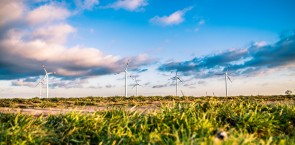
At an Environmental Finance conference this month, financers signalled strong interest to invest in forest carbon projects.
At an Environmental Finance conference this month, financers signalled strong interest to invest in forest carbon projects.
Given that imminent investment is needed, how close are we to a framework that propels financers to back forestry?
For the second year running, key actors from the finance and sustainability sectors congregated for the “Forestry, Biomass and Sustainability” conference in London to explore the readiness and potential that forests have in a maturing carbon market.
Voluntary market is key
While land use, land-use change and forestry (LULUCF) were only weakly included in project components of the Kyoto protocol, the voluntary market for forest carbon projects is growing. Forest carbon projects represent 24% of the voluntary carbon market compared to 1% for the compliance market.
Government-led initiatives pioneered and created credible standards and mechanisms for monitoring, verifying and reporting forest carbon projects. These fore-runners see forest carbon storage as an effective and co-beneficial way of mitigating climate change and have been instrumental in propelling the voluntary carbon market.
Investors increasingly view companies’ carbon emissions – both upstream and downstream – as a serious liability. Motivated to make cost-savings, uphold a positive CSR image and prepare for regulatory compliance, businesses are driven to monitor, reduce and offset their carbon emissions.
Forestry Commission: trees don’t stop growing
At the two-day conference held on 11-12 May 2011, the UK Forestry Commission’s Economic Adviser Pat Snowdon stated how, “despite the economic downturn and global financial recession, trees don’t stop growing”. This thought-provoking message resonated with conference participants from investors and carbon projects developers, to credits traders, standard organisations and forest carbon academics.
Come rain or shine, well-managed forests maintain their carbon stock and are well positioned to make significant contributions to tackling climate change. Investors increasingly see forests as a credible and reliable investment option.
Silence before the storm
High costs and long timeframes for project development, coupled with modest revenue generation in the short-term are still making investors reluctant. But like a silence before a storm, it appears that today we are at the foot of a surge in the market.
Several speakers emphasised the need for projects of scale to obtain the revenue needed to mitigate investor’s risk. Forest carbon project and standards have now reached the quality and credibility needed to roll out projects of scale.
Although the private market is key, conference participants urged national governments to put place economic initiatives in place that will give forest a boost in the green economy.
“We have to realise that CSR is not enough. We also need a hard headed approach by national governments to get the market fully up and running”, said Mike Bess from Camco, presenting a project developer’s perspective on the complementary frameworks needed.
A long-term commitment
Forest carbon credits go a long way to capturing forests’ true values in today’s financially driven system. Although investors are becoming increasingly aware of the many values that forests bring, greater awareness is needed of the community and biodiversity benefits that are central to forest carbon projects.
Investing in forest carbon is a long-term commitment. This was a key message stressed by the head of Danone Fund for Nature, Jean-Pierre Rennaud, drawing on experience from their carbon mangrove project in India carried out in collaboration with IUCN.
At the same time, project developers should realise that finance from carbon credits should not be the only revenue source, states Mr Bess. Developers should also seek traditional project funding such as private funds, commercial sponsors or development aid.
Beyond the tropics
Until now, all attention has been on the tropics. But there is great untapped potential for innovative forest carbon projects in Europe and Russia. NEPCon aims to bring awareness on the potential that European forests have to be an integral part of the solution to climate change.
In Europe, some 16 million hectares – representing 55% of forests – are managed by smallholders. Especially for these forest managers, providing a new source of income for environmental services to the forestry sector will make a huge incentive to keep their forests standing.
With nearly 15 years experience in forest certification, extensive forest service portfolio and a strong geographic presence, NEPCon in collaboration with the Rainforest Alliance hold strong expertise in verification of forest carbon projects, and are positioning ourselves as leaders in boreal and peatland forests across Europe and Russia.
Support NEPCon’s projects
Are you an investor, a forest manager, or a researcher? You have the opportunity to advance these important efforts by supporting NEPCon’s forest carbon initiatives in Europe and Russia.
These initiatives will ensure maximum social and environmental benefits are reaped from the projects, including:
- providing credible validation and verification of forest carbon projects
- ensuring the quality and credibility of projects ideas
- introducing carbon projects to forest managers
- testing the feasibility of voluntary carbon standards
- providing generic training for project developers
We welcome partnerships, expertise and financial support and welcome your organisations to support or be involved in these cutting-edge projects.
Contact us
For more information on NEPCon’s climate initiatives and forest carbon projects, please contact NEPCon’s climate programme coordinator Gertrud Kümmel Birk by email or phone (+45 31557539).
Related stories:
Study unveils strong business case for responsible forestry (11/12/2010)
Report: FSC an asset for timberland investment in Canada (2/2 2011)
Cancún climate talks led to sound forest deal (15/12/2010)
Big brands disclose their forest footprint (15/2 2010)
Ethical bank targets FSC business in developing countries (19/1 2010)
Companies asked to disclose their forest footprint (10/9 2009)
Large pension fund invests in responsible forestry (26/3 2009)

